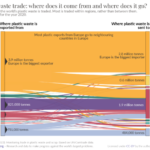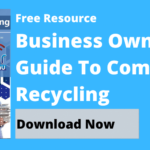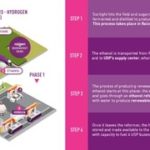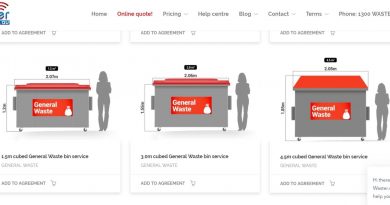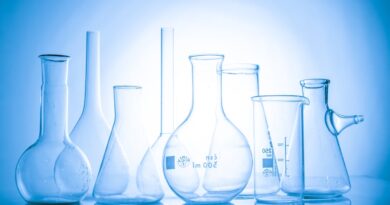Could We Convert Plastic Waste Into Fuel Source? ⛽
Energy Disrupter
Converting Plastic Waste To Fuel ⛽: In recent years, and with the increase in plastic waste around the world, people have begun to think seriously about how to reduce it. What if there was a better solution than simply landfilling it? What if we could use all this plastic waste not just for reducing its negative impact on our environment but also as a potential source of fuel? In this blog, we will explore the possibility of using plastic as a fuel source and answer some questions such as: is it possible and practical? What are its benefits and drawbacks? And can other forms of renewable energy sources be used instead of plastics for fuel? So let’s begin to dive into exploring this intriguing new topic!
Only those who have been living under a rock for so, so long would not know that plastics are a huge problem in the world. All our landfills are rapidly being filled up with plastics. Globally, we produce around 400 million tonnes of plastic every year. Unfortunately, less than 10 per cent of it gets recycled. A staggering 85 per cent of plastic waste still end up in landfill.
Also, add that to the fact that plastics do not go away for a really long time (plastics can last centuries at the minimum), and we have ourselves a problem that seems out of reach to solve. Solving this problem seems nigh impossible.
>Download Now: Free PDF Business Owners Guide To Commingled Recycling Bin Services
All is not lost
However, the brightest minds have steadily researched, again and again, the best ways to combat the growing number of plastic waste and have come up with a few viable solutions. One such solution they have thought of is converting plastic waste to fuel. This means that we should essentially prioritise chemical recycling over its mechanical counterpart.
How does converting plastic waste to fuel work even work? And is it really a viable solution? Let’s talk about it more below.
How converting plastic waste to fuel works
As mentioned above, how does converting plastic waste to fuel work?
Essentially, additives are used to alter the chemical structure of waste plastic, reverting it back to substances we consider raw materials, which can be used for making fuel such as petrol and diesel.
In theory, chemical recycling and converting plastic waste to fuel are better than mechanical recycling and incineration. Mechanical recycling, the most used method to deal with plastic waste, involves a number of mechanical processes which include the following: grinding or shredding, melting, washing and reforming plastic as its original product. Take note, however, that mechanical recycling significantly degrades the finished product’s quality again whenever the process takes place. As a result, industries do not widely mechanically recycle plastic.
Incineration, on the other hand, involves burning plastic waste and converting it into heat and electricity – a good way to eliminate and produce electricity. However, this method also has its glaring flaw. The incineration process may result in emitting toxic pollutants like Dioxins, Furans, Mercury and Polychlorinated Biphenyls, along with heavy metals into the atmosphere.
Obviously, this means that the last option is chemical recycling. Experts see this process as the most promising, and with the least impact on the environment. Having said all of that, converting plastic waste to fuel does have two major downsides. The downsides are they are costly and inefficient, according to environmental groups.
Converting plastic waste to fuel… or even converting it into something different?
For the reasons mentioned above, we may not see the chemical recycling of plastic waste to fuel at all. But still, that can all change with a newly-introduced solar-powered system.
BBC recently reported that Prof Erwin Reisner and his team, working at the University of Cambridge in the energy and sustainability department, have developed a process to convert not just plastic waste, but also carbon dioxide (CO2) into two chemical products at the same time, powered by sunlight.
According to the report, the technology developed by Prof Reisner and his team transforms both plastic waste and CO2 into syngas, the key component of sustainable fuels such as hydrogen. Aside from that, it also has glycolic acid, which is widely used in the cosmetics industry.
The system works by integrating catalysts, chemical compounds which accelerate a chemical reaction, into a light absorber. More on the BBC News report:
“Our process works at room temperature and room pressure,” he says.
“Reactions run automatically when you expose it to sunlight. You don’t need anything else.”
And, assures Prof Reisner, the process produces no harmful waste.
“The chemistry is clean,” he says.
Notably, other solar-powered technologies hold promise for tackling plastic pollution and CO2 conversion. However, this would be the first time they have been combined in a single process.
Waster’s final thoughts
Ultimately, from the research presented in this blog, converting plastic waste to fuel is possible, but unfortunately, not practical at the moment. Although a lot of countries seem to be taking positive steps forward to reduce plastic pollution, we need to look at both short-term and long-term solutions.
Converting plastic waste into fuel has a relatively low emission profile when compared to mechanically recycling it back to plastic or incinerating it and turning it into electricity, making it even more efficient in terms of resource management and environmental protection over the long run.
Whilst there are still some drawbacks that will affect its mass adoption, technological advancements have already made a tremendous difference in creating awareness among people. It can help open up new possibilities for cleaner energy production whilst addressing many of the most pressing environmental issues that our world is facing today.
So what are your thoughts about converting plastic waste to fuel? Of course, we want to hear your opinions. Comment down below!
More things you need to know about Waster
If you’re looking for recycling bins, check our waste recycling shop and find the best deals in terms of pricing and services.
Also, please call 1300 WASTER (1300 927 837), or email us at [email protected] if you have any further questions.




